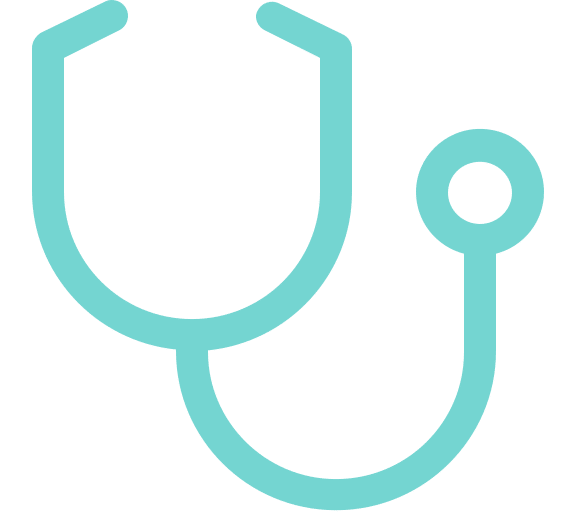Online Prescription
Rosacea Treatment
Ireland’s Award-Winning Online Doctor Service


Rosacea Treatments That We Can Provide
Please check your dispensed prescription before leaving the pharmacy as no changes can be made after that point.
- Topical Treatments: Creams or Gels
- Oral Antibiotics (TABLETS)
Included:
- You need to upload 2 clear up-to-date photographs of your rosacea.
- Although rosacea is a long-term skin condition there are effective treatments that can help to control your symptoms when they flare. We can arrange prescriptions for a variety of treatments depending on your symptoms.
Excluded:
- This service is not suitable for you if:
- You have other skin conditions that affect your face e.g. acne, lupus
- You have severe rosacea symptoms
- You have rhinophyma associated with rosacea (this is excessive thickening of the skin around the nose)
- You have rosacea symptoms that are affecting your eyes or eyelids, now or in the past
- You have not been diagnosed with rosacea by a doctor in the past
- You are pregnant, planning to become pregnant or breastfeeding
- You require a prescription for a medication that is not listed in our medical application questionnaire. We are not able to provide a prescription for oral retinoids.
Important Medical Information
Who is this service suitable for?
- You are 17 years of age or older
- You have been diagnosed with inflammatory Rosacea by a doctor in the past. (Inflammatory Rosacea is when there are small lumps and spots present.)
- You have mild to moderate Rosacea symptoms
- You are able to upload 2 clear uptodate photographs of your Rosacea.
Who is this service not suitable for?
- You have not been diagnosed with Rosacea by a doctor in the past
- You are pregnant, planning to become pregnant or breastfeeding
- You require a prescription for a medication that is not listed in our medical application questionnaire. We are not able to provide a prescription for oral retinoids.
- You have other skin conditions that affect your face e.g. acne, lupus
- You have severe rosacea symptoms
- You have Rhinophyma associated with Rosacea (This is excessive thickening of the skin around the nose)
- You have rosacea symptoms that are affecting your eyes or eyelids, now or in the past
Please note: Inflammation/ infection in the front of your eye is a potentially serious, sight-threatening problem. Thankfully, this is uncommon, but you should speak with a doctor URGENTLY if you have rosacea and develop pain in your eye or visual disturbance.
If this service is not suitable for you and you have a flare of your rosacea symptoms you should arrange a face-to-face review with your local doctor or a video consultation with one of our online doctors.
What is Rosacea?
Rosacea is a ‘relapsing-remitting’ condition, which means that you will have periods where it flares (relapsing) and times when it settles (remitting). The frequency and duration of both these phases are unpredictable.
What are the symptoms of Rosacea?
Type and severity of symptoms can vary significantly.
There are different types of Rosacea. This is important to consider as they respond to different treatments.
- Vascular Rosacea: facial flushing, skin redness and prominent blood vessels (telangestica).
This type of Rosacea does not respond to antibiotic treatment (creams or tablets). - Inflammatory Rosacea: This type of Rosacea often responds to antibiotic treatments.
- Ocular Rosacea (affects the eyes)
There are associated eye symptoms in approximately 50% of patients:- Dry eyes
- Itchy/ burning eyes
- Gritty sensation
- Sensitive to light
- Styes and blepharitis (inflammation of the eyelids)
- Inflammation or infection of the cornea (clear outer layer) is a rare but potentially sight threatening condition. You should see a doctor URGENTLY if you have Rosacea and you develop eye pain or visual disturbance.
- Rhinophyma: thickening of the skin on the nose; this most commonly affects men.
What causes Rosacea?
- The exact cause is not known and a number of factors are believed to play a role: overactive immune system, genetics and environmental factors, or a combination of these.
- Demodex folliculorum may also play a role. This is a tiny mite that normally lives on our skin and does not cause any harm. Higher numbers of this have been found on the skin of those with Rosacea.
- It is not currently believed that Rosacea is caused by bacteria.
- Rosacea triggers cause the blood vessels in the affected skin to enlarge and a flare of symptoms. There are many different triggers and these vary between people. If identified these should be avoided to reduce symptom flares.
- It is not caused by poor hygiene and it is not contagious.
Are there things I can do to help reduce Rosacea flares?
- If you know what can trigger your symptoms, avoid these things where possible!
Examples of triggers: alcohol, spicy foods, caffeine, cheese
- Wear SPF of at least factor 30 every day (even cloudy days) and avoid exposure to direct sunlight.
- Use a hypoallergenic, non-perfumed and non-greasy moisturising cream if you have dry skin
- Avoid extremes of heat (turn the temperature down in the shower!)
- Camouflage creams and make-up can help to cover and conceal erythema and telangiectasia. Your local make-up counter or pharmacist can advise you on this.
What Rosacea treatments can we provide?
Although Rosacea is a long term skin condition there are effective treatments that can help to control your symptoms when they flare. We can arrange prescriptions for a variety of treatments depending on your symptoms.
The topical treatments (creams/ gels) can be used alone or in combination with oral antibiotic treatments.
All of the treatments for Rosacea will take at least 4 weeks, and up to 12 weeks before improvements are seen. If there is no improvement after this time, or your symptoms deteriorate during this time then you should arrange a face-2-face review with a doctor.
Topical Treatments
These creams and gels will have one of the following:
- Antibiotic medication
- Anti-mite medication (Demodex folliculorum )
- Anti-inflammatory properties
Oral antibiotics: Tetracyclines
These oral antibiotics are used in the treatment of Rosacea for their anti-inflammatory effects rather than their anti-bacterial properties, as it is not currently believed that bacteria contribute to this skin condition. They are useful in inflammatory rosacea (spots/ lumps present).
They are not helpful in vascular Rosacea (flushing, redness and telangiectasia).
If clinically appropriate, a prescription for 12 weeks of antibiotic treatment (tablets) may be issued, but current guidance is that this is of limited value in non-inflammatory Rosacea. This should be used along with a non-antibiotic cream/ gel for best results.
What are the side effects of these treatments?
The most common side effect of the topical treatments is skin irritation (dry skin, redness, peeling and burning sensation).
It is important to know that these treatments can make your symptoms worse before they improve.
Using these products more frequently than advised will not have any beneficial effect on symptom control, and will significantly increase the risk of problematic skin irritation.
Some patients may develop side effects when using oral antibiotics such as nausea, vomiting, diarrhoea and abdominal pain (‘heartburn’). If you develop a persistent headache with blurred vision/ loss of vision, stop this medication and seek urgent medical advice.
Both the topical AND the oral treatments prescribed will make your skin more photosensitive and therefore more likely to burn. Exposure to sunlight/ sun lamps should be avoided. This can also be a trigger for a flare of rosacea symptoms.
For full details on potential side effects of your medication, please ensure that you read the patient information leaflet that comes with your medication before you start to use it for full details on potential side effects.
If you are concerned that you are developing any side effects, we advise that you stop your medication and seek medical advice.
Need more information on Rosacea?
For further information about Rosacea, including useful skincare tips refer to PCDS.
Important safety information
When completing the questionnaire, please ensure you let us know exactly what medications you are taking and if you have any other medical problems. This will enable us to advise you on appropriate treatments and prescribe them safely for you.
This service is intended for people who have typical flares of their symptoms. We strongly advise that if you notice any changes in your typical symptoms or develop new symptoms that you arrange a face-to-face consultation.
How It Works
Requesting a prescription for Rosacea treatment couldn’t be easier with Webdoctor.ie! We despatch your prescription to an Irish pharmacy chosen by you.

Step 1
Online Questionnaire

Step 2
Medical Review

Step 3
Webdoctor.ie
Customer Review
Why Choose Webdoctor.ie?

Expertise
All of our doctors are registered with the Irish Medical Council and provide convenient and confidential healthcare to our patients.
Confidential
Caring
Convenience
Value
Irish
Webdoctor.ie is an Irish-based healthcare provider that has carried out over 130,000 patient consultations.
Webdoctor.ie In The Media
As Ireland's leading online doctor service, Webdoctor.ie is regularly featured in the national media.
Want to know more about us?
Visit our media page